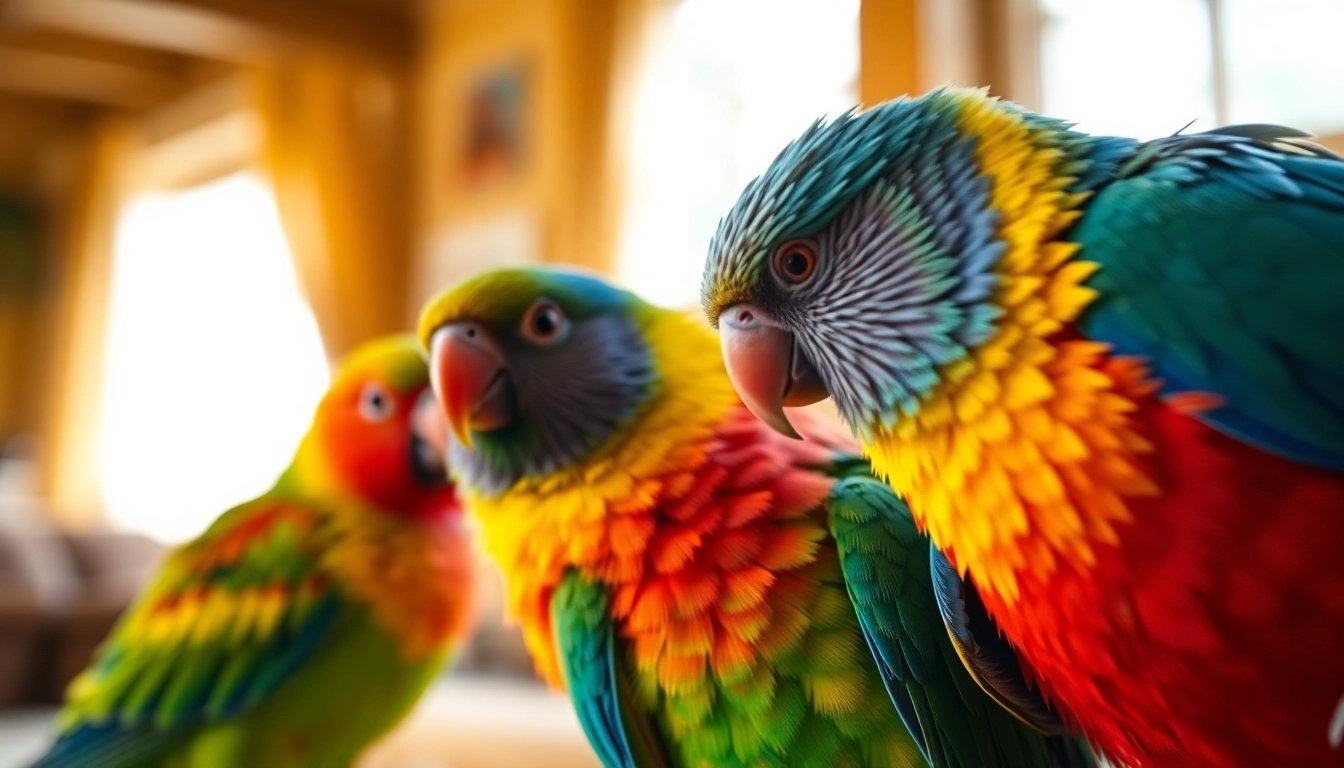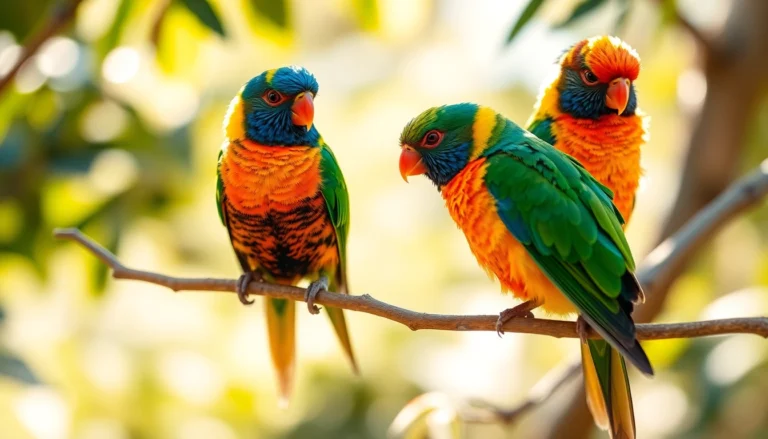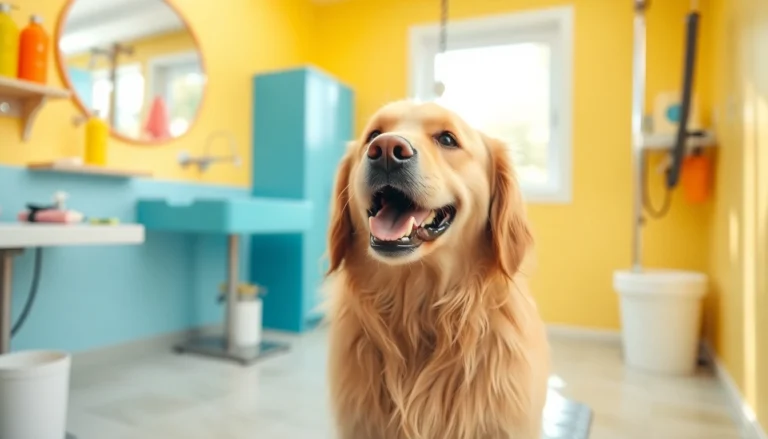Understanding Different Types of Pet Birds
Choosing the perfect pet bird begins with understanding the diverse range of species available, each with unique behaviors, care requirements, and personalities. With countless options, it’s essential to consider factors such as size, lifespan, temperament, and compatibility with your lifestyle to ensure a harmonious relationship. For those new to avian companionship, starting with beginner-friendly species can make the transition smoother and more rewarding. To explore some of the most popular choices, visit pet birds and gain insights into various species suited for novices and seasoned bird lovers alike.
Popular Pet Bird Species for Beginners
When venturing into the world of pet birds, beginners should prioritize species known for their manageable care needs and friendly dispositions. Among these, parakeets (also called budgerigars or budgies) stand out as one of the top choices due to their small size, adaptability, and engaging personalities. Cockatiels are another excellent option, celebrated for their social nature and ease of interaction. Other beginner-friendly species include lovebirds, finches, and canaries. These birds typically have shorter training curves and are more forgiving for new owners learning the ropes of avian care.
According to avian experts and veterinary sources, choosing a bird that matches your available space, daily routine, and experience level can significantly improve your success and your pet’s wellbeing. Be sure to research each species thoroughly, noting their specific needs, potential lifespan, and behavior patterns.
Choosing the Right Pet Bird for Your Lifestyle
Selecting the appropriate pet bird demands honest evaluation of your lifestyle. For example, if you have limited time for daily interactions, low-maintenance species like finches or certain small parrots that can entertain themselves might be suitable. Conversely, if you desire a highly interactive pet that thrives on social engagement, species like cockatoos or lovebirds can be more fitting, but they require more dedicated attention and mental stimulation.
For busy individuals or families, poicephalus parrots are known for their independence, often managing well when left alone for moderate periods. On the other hand, species such as parrots and macaws are highly social and need regular companionship and enrichment, necessitating a greater time investment. Make an honest assessment of your daily schedule, environmental conditions, and long-term commitments before choosing your feathered friend.
Differences in Size, Lifespan, and Care Needs
Pet birds vary dramatically in size, with some like smaller finches measuring just a few inches, while large macaws can exceed three feet. This size difference influences cage requirements, handling, and potential space considerations. Larger parrots tend to have longer lifespans—macaws and cockatoos often reach 40-60 years with proper care—highlighting the importance of long-term planning. Smaller species like canaries or finches may live 5-10 years, making them more suitable for temporary or first-time owners.
Care needs also fluctuate, with larger birds typically requiring more elaborate cages, specialized diets, and increased social interaction. Conversely, smaller species demand less space but still need mental enrichment, proper nutrition, and routine health checks. Recognizing these differences helps owners establish appropriate care routines and set realistic expectations for longevity and lifestyle compatibility.
Essential Tips for Caring for Pet Birds
Creating a Safe and Stimulating Environment
A safe and enriching environment is fundamental to the health and happiness of pet birds. Your cage should be spacious enough to allow free movement, stretching, and flight for larger species. Use cage bars appropriate to prevent escape and avoid sharp edges or toxic materials. Include perches of varying diameters and textures to promote foot health and prevent boredom.
Beyond cage setup, provide toys that stimulate mental activity, such as bells, mirrors, and puzzle feeders. Rotate toys regularly to maintain interest and prevent destructive behaviors. Place the cage in a well-lit area that avoids drafts, direct sunlight, and exposure to household hazards like fumes or domestic pets. Creating a social, secure environment lowers stress and fosters a trusting bond between you and your bird.
Feeding Recommendations for Healthy Pet Birds
Feeding is one of the most crucial aspects of avian care. A balanced diet should comprise high-quality commercial pellets, supplemented with fresh fruits, vegetables, and occasional seeds or grains. Avoid feeding birds avocado, chocolate, caffeine, or salty foods, which can be toxic. Fresh, clean water must always be available and changed daily.
Some species have specific dietary needs—parrots, for instance, require nuts, seeds, and vegetables rich in calcium and vitamins. Regularly consulting avian nutrition experts or veterinary guidance can help tailor an optimal diet. Monitoring weight, feather condition, droppings, and activity levels can alert owners to potential health issues related to diet deficiencies or excesses.
Routine Health Checks and Signs of Illness
Prevention is better than cure, and routine veterinary checks are vital to detect early signs of illness. Signs of health problems include changes in appetite, abnormal droppings, feather plucking, lethargy, or respiratory distress. Establishing a relationship with an avian veterinarian experienced in bird medicine is recommended for annual health assessments and emergencies.
Proper quarantine procedures when introducing new birds and maintaining clean cages also reduce disease risks. Owners should educate themselves on common avian ailments such as psittacosis, avian influenza, and parasites, enabling prompt action and treatment when needed.
Training and Socializing Your Pet Birds
Building Trust and Encouraging Interaction
Training and socialization foster a trusting relationship between owner and bird, significantly enhancing their life together. Start with gentle, consistent handling, allowing your bird to acclimate to your voice and presence. Use positive reinforcement techniques—praise, treats, and patience—to encourage desired behaviors.
Building trust may take time, especially with shy or nervous species. Spend daily periods near the cage, talking softly or offering treats through the bars. Gradually introduce handling, ensuring your bird feels safe and not overwhelmed. This foundation encourages social bonds and facilitates easier training and health routines.
Teaching Simple Behaviors and Tricks
Birds are capable of learning a variety of behaviors and tricks, including step-up commands, fetch, or even mimicry of words and sounds. Consistency, patience, and positive reinforcement are key. Break tasks into small steps and reward progress to reinforce learning effectively.
Training sessions should be short, engaging, and stress-free, ideally conducted in a calm environment. Use clicker training or treats to reinforce positive behaviors. When successful, these interactions can serve as mental stimulation, reduce boredom, and strengthen your bond.
Handling Shy or Anxious Pet Birds Effectively
Some birds are naturally more reserved or skittish. Patience and gradual exposure are essential. Avoid sudden movements or loud noises, and approach bites or fearful behaviors with calmness. Allow your bird to approach you on its own terms, and offer rewards for calm interactions.
Creating a predictable routine, providing hiding spots within the cage, and maintaining a quiet environment can help reduce anxiety. Over time, gentle handling and positive reinforcement will build confidence and trust, leading to more interactive and relaxed companionship.
Maintaining Long-Term Happiness and Wellbeing
Providing Mental Enrichment and Toys
To prevent boredom and destructive behaviors, mental stimulation is crucial. Provide a variety of toys, such as puzzles, foraging devices, and branches for perching. Rotate and introduce new toys periodically to maintain interest. Encouraging natural behaviors like foraging and shredding keeps your bird engaged and mentally active.
Enrichment not only improves mood but also reduces stress-related issues and feather plucking. Observing your bird’s preferences and adapting activities ensures a stimulating environment that promotes long-term wellbeing.
Understanding Their Social Needs and Companionship
Most pet birds are social creatures that thrive on interaction. While some species like Poicephalus parrots can do well alone with periodic attention, many others require daily social contact to remain happy. Consider adopting a companion bird if your schedule limits interaction. Alternatively, dedicate time for engaged play and conversation each day.
Recognizing signs of loneliness or depression—such as excessive vocalization, inactivity, or feather plucking—is vital. Proper socialization and companionship significantly influence your bird’s happiness and health.
Scheduling Regular Veterinary Care
Long-term happiness depends on proactive health management. Regular veterinary visits for exams, vaccinations, and preventive care help maintain your bird’s health. Be attentive to changes in behavior, droppings, or appearance, and seek prompt veterinary advice if concerns arise.
Keeping up with clean cages, proper nutrition, and stress reduction measures contributes to longevity and quality of life. Prioritize annual check-ups and maintain a relationship with an avian veterinarian familiar with your species’ unique needs.
Costs, Commitment, and Considerations for Pet Birds
Estimated Expenses for Care and Supplies
Owning a pet bird involves ongoing costs that should be carefully budgeted. Initial expenses include purchasing the bird, cage, toys, feeders, perches, and a starter diet, typically ranging from $200 to $800 depending on the species and quality of supplies. Monthly expenses encompass food, bedding, toys, and routine veterinary care, averaging around $50-$150.
Large parrots and exotic species often require specialized diets and cage setups, increasing costs. Additionally, consider unexpected expenses such as emergency veterinary visits, which can be significant but are essential for your bird’s health.
Life Expectancy and Long-term Planning
Many pet birds have impressive lifespans, with some parrots living 50 years or more, necessitating long-term commitment and planning. Before bringing a bird home, assess your ability to care for it over its entire life course, including contingency plans for illness, aging, or changes in circumstances.
Long-term ownership demands patience, financial stability, and emotional readiness, ensuring your feathered companion receives consistent care and affection throughout their life.
Legal and Ethical Considerations for Pet Bird Ownership
Owning a pet bird also involves understanding legal and ethical responsibilities. Some species are protected or regulated, requiring permits or adherence to conservation laws. Ethically, avoid purchasing from illegal or inhumane sources; instead, seek reputable breeders or rescue organizations.
Educate yourself about habitat conservation, the impact of illegal trade, and sustainable practices. Your commitment extends beyond your home to advocate for ethical ownership and the preservation of wild populations.



















